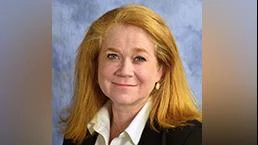Aileen Switzer, Deputy Secretary | Wisconsin Department of Agriculture, Trade and Consumer Protection
Aileen Switzer, Deputy Secretary | Wisconsin Department of Agriculture, Trade and Consumer Protection
The Wisconsin Department of Agriculture, Trade and Consumer Protection (DATCP) is open to receiving comments until April 29, 2025, about a special pesticide registration proposal to combat weeds in carrots. The registration under consideration pertains to the Lorox DF herbicide, produced by Tessenderlo Kerley, Inc., which includes the active ingredient linuron.
Although Lorox DF is already registered for use in carrots and other crops in Wisconsin, its usage is restricted in sandy soils. Therefore, a special registration is proposed to help carrot growers tackle broadleaf weeds, notably common ragweed and Eastern black nightshade, which have increasingly become an issue in the Central Sands region due to limited pesticide alternatives. The presence of nightshade is particularly concerning, as it produces poisonous berries that pose a risk during crop harvest.
The proposed special registration includes limitations on application zones where the groundwater depth is less than 30 feet, contingent upon the soil's organic matter content. This will be the second special registration for Lorox DF, with an anticipated expiration date of December 31, 2029. The previous registration period did not report any adverse effects.
According to a preliminary environmental assessment, the new registration will not necessitate a comprehensive environmental assessment. Feedback submitted by 4:30 p.m. on April 29, 2025, will be incorporated into the preliminary environmental assessment record. Interested parties can request copies of the assessment and submit comments via mail to Alyssa Foss at DATCP, PO Box 8911, Madison, WI, 53708-8911, or by email.
The special registration framework permits states to approve additional pesticide uses beyond what each product's label lists, without needing prior federal consent. It serves as a solution for farmers facing localized pest issues that cannot be effectively managed with available federally registered products, such as insect infestations, fungal diseases, and weeds that compete with crops.






 Alerts Sign-up
Alerts Sign-up